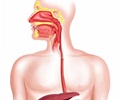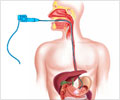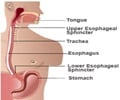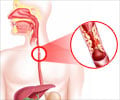Treatment & Lifestyle Modification for Barrett’s Esophagus
Treatment depends on the extent of the condition. Lifestyle modification and some drugs may help to slow disease progression.
Once the condition is diagnosed, a repeat endoscopy and biopsy should be carried out to confirm the condition. Treatment depends on the stage of the disease -
- If there is no dysplasia, endoscopy may be repeated every 3 years.
- A low-grade dysplasia patient should undergo repeat endoscopies every year till no dysplasia is detected.
- An expert gastroenterologist should confirm the biopsy of a high-grade dysplasia patient. The following treatments may be followed depending on the number of sites affected
- If dysplasia is localized to one area of the esophagus, repeat endoscopy is recommended every 3 months.
- If dysplasia affects multiple sites in the esophagus, the following treatments may be advised
- Ablative therapies - The inner lining of esophagus may be destroyed by using procedures like photodynamic therapy, argon laser photocoagulation, multipolar electrocoagulation, heater probes, cryotherapy, radiofrequency ablation and laser therapy.
- Surgery – The affected part of the esophagus is surgically removed and the stomach is attached to the lower normal end. If the cancer is limited to the inner lining, only the inner lining may be removed. However, an ultrasound should be carried out first to confirm the extent of the cancer.
Since Barrett’s esophagus is caused by acid reflux, some drugs that treat the reflux may slow the progression of the condition. These include -
- Drugs that reduce acidity – Among these, a class of drugs called proton pump inhibitors has been found to be most effective. These include omeprazole, lansoprazole and pantoprazole.
- Drugs that increase the movements of the esophagus – These drugs help to clear the esophagus of the acid from the stomach and increase the lower esophageal tone. These drugs include metoclopramide and domperidone.
Lifestyle modifications the patient is advised to follow include -
- Avoid fatty foods, chocolate, caffeine, peppermint and other substances that increase acidity and reflux.
- Avoid smoking and alcohol
- Avoid painkillers such as aspirin and ibuprofen
- Take all medications with plenty of water
- Reduce weight
- Eat small meals
- Eat at least three hours before sleeping
- Raise the head end of the bed












